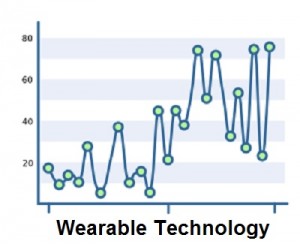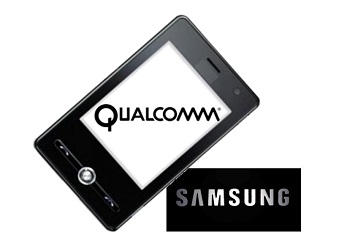Wearables battle to become appealing to users as paten publication grows at a striking rate.
Despite the fact that the majority of consumers still aren’t buying wearable technology, the overall patent publications associated with those devices has been rising at a rate of about 40 percent per year since 2010.
From 2010 through until the end of May of this year, there have been 41,301 patents published.
It looks as though the tech behind wearable technology is being firmly locked into place, but the one primary question is what it will take to make consumers actually open up their wallets and buy these devices. Moreover, once they have them, will they actually like the experience or will it end up being a flash in the pan fad that goes out about as quickly as it came in?
Wearable technology takes in a massive group of gadgets, form smartwatches to augmented reality glasses.
 There are fitness trackers, watches, glasses, goggles, and even diapers that all fall within the wearables category and that are already on the shelves and waiting for consumers to purchase them. However, analysts insist that it remains far too early to be able to decide which among this type of gadget will manage to sway consumers to actually buy, and how they will transform this sector of the market.
There are fitness trackers, watches, glasses, goggles, and even diapers that all fall within the wearables category and that are already on the shelves and waiting for consumers to purchase them. However, analysts insist that it remains far too early to be able to decide which among this type of gadget will manage to sway consumers to actually buy, and how they will transform this sector of the market.
As a whole, the patent publication of wearables that are integrated into all forms of accessories and clothing that can be worn, has been rising by an annual 40 percent over the last five years. That statistic was released by Lux Research, a firm based in Boston.
At the head of the patent filing game was Samsung Electronics. In second place was Qualcomm, followed by Apple Inc. in third. According to market analysts, Samsung is making a concerted effort to lead the way in a wearable tech market that will have far greater consumer appeal over coming years.
Tony Sun, a research analyst at Lux, explained the current wearable technology situation by saying that “First, moving into wearable electronics agrees with the general interest of using electronic devices to better understand oneself in a quantitative way.” He went on to point out that “Second, Samsung is a major consumer electronic device and component developer. Wearable devices, like smartwatches, are a natural fit for Samsung’s existing manufacturing capability, technology portfolio as well as customer base.”

 For example, there has been growing drive for the system chips business at Samsung, which is expected to turn toward a profitable direction before the close of 2015. That said, it could make things more of a struggle for Taiwan Semiconductor Manufacturing Company (TSMC), since that firm has received the majority of the Qualcomm orders for the higher end processing chips.
For example, there has been growing drive for the system chips business at Samsung, which is expected to turn toward a profitable direction before the close of 2015. That said, it could make things more of a struggle for Taiwan Semiconductor Manufacturing Company (TSMC), since that firm has received the majority of the Qualcomm orders for the higher end processing chips.